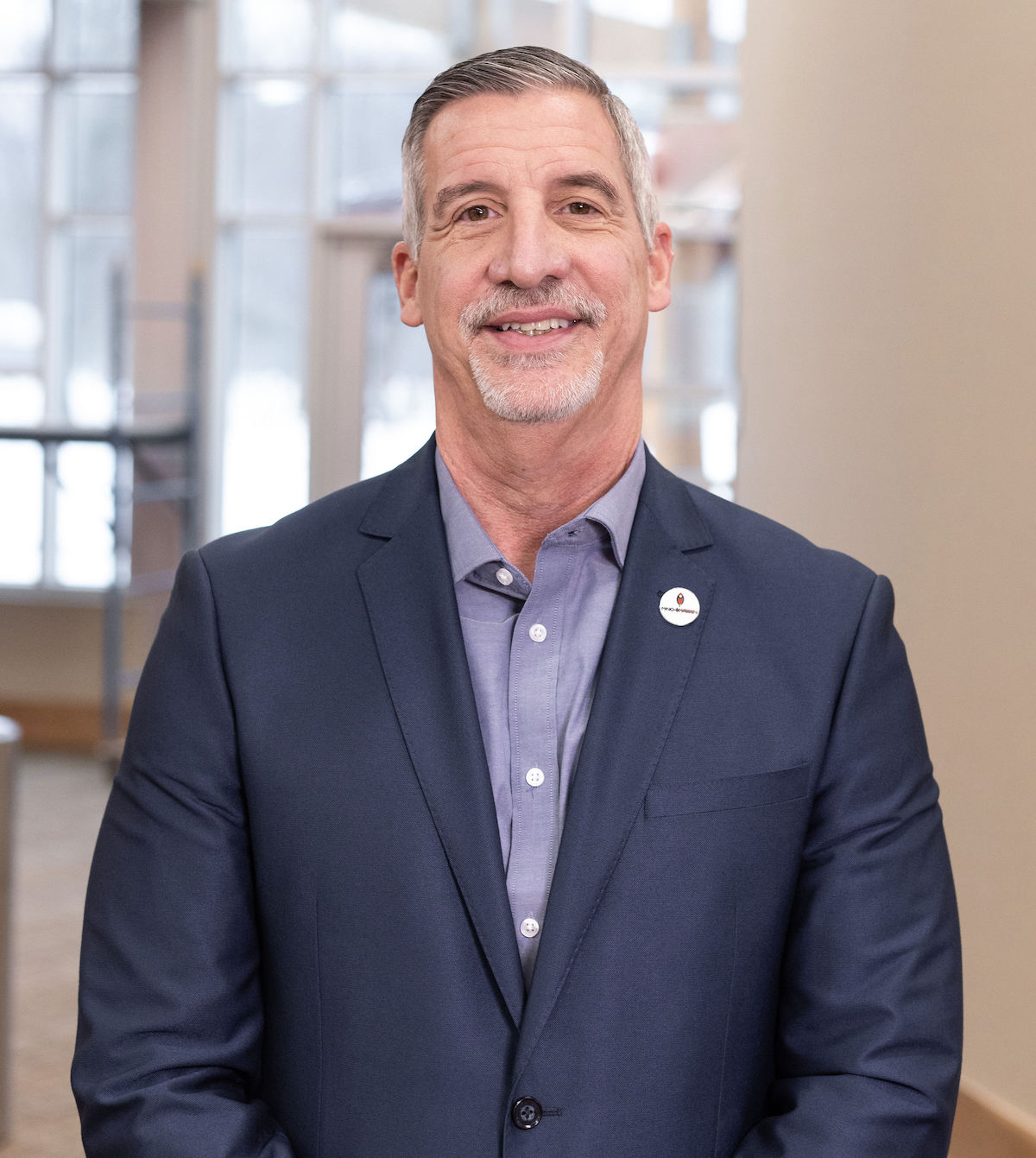
- Details
- By Joe Boomgaard
- Economic Development
GRAND RAPIDS, Mich. — A pair of Michigan-based Potawatomi tribes hope their co-investment strategy can serve as a model for tribes to work together on economic development projects.
Last year, Waséyabek Development Co. LLC, the non-gaming arm of the Nottawaseppi Huron Band of the Potawatomi, made a passive investment into a deal led by Gun Lake Investments, the non-gaming investment arm of the Match-E-Be-Nash-She-Wish Band of Pottawatomi. The acquisition of Holland, Mich.-based Zip Xpress and Green Transportation, a pair of related trucking and logistics companies, marked the second time that the two tribal investment firms joined together in a deal.
 Deidra Mitchell, CEO of Waséyabek Development Co. (Courtesy photo)According to Waséyabek CEO Deidra Mitchell, the two Potawatomi tribes forged a relationship over the last few years in an intentional process to find ways to do business together and support inter-tribal economic development.
Deidra Mitchell, CEO of Waséyabek Development Co. (Courtesy photo)According to Waséyabek CEO Deidra Mitchell, the two Potawatomi tribes forged a relationship over the last few years in an intentional process to find ways to do business together and support inter-tribal economic development.
“Sometimes in Indian Country, you have to establish a workable model and prove it before you can start gaining trust,” said Mitchell, who was honored last week by MiBiz, a regional business publication in West Michigan, as the 2022 Dealmaker of the Year in the investor category.
Want more news like this? Get the free weekly newsletter.
She cited discussions with former Gun Lake Investment CEO Kurtis Trevan “about what it would mean to Indian Country to be able to create this model, and then once proven, be able to invite other tribes into the investment.”
Those initial talks preceded the January 2020 deal in which Waséyabek and Gun Lake Investments jointly acquired the 18-story McKay Tower building in downtown Grand Rapids for $17.5 million. However, Mitchell noted that the real estate deal is “very different from an operating business.”
As well, Waséyabek and Gun Lake Investments approached other Potawatomi tribes about getting involved in the Zip Xpress/Green Transportation deal, according to Mitchell. The two tribal economic development organizations participate in the quarterly Potawatomi Economic Summit, which brings together representatives of the nine Potawatomi bands recognized by the governments of the United States and Canada.
“We had talked about the investment there and laid out how we were approaching it. We were open to other tribes joining at that time,” Mitchell said. “Now that (the Zip Xpress/Green Transportation deal) has been closed … there was a lot of conversation about, ‘Hey, this makes sense, and you guys got it done.’
“We’re really hoping with the next opportunity that comes along that we can get some other tribes involved.”
Julio Martinez, the CEO of Dowagiac, Mich.-based Mno-Bmadsen, the investment arm of the Pokagon Band of Potawatomi, said his organization regularly meets with Potawatomi and other tribes to “explore the possibilities of co-investing.”
“Co-investments, among other things, allow for larger acquisitions, which generally have more robust organizational structure, which mitigates some of the risk of otherwise investing in smaller ones,” Martinez told Tribal Business News.
Despite the ongoing conversations and regular contact with other potential tribal partners across the country, Mno-Bmadsen has yet to do a deal with another tribal economic development arm. Martinez said that the governance structures for the tribal investment arms can pose weighty challenges when it comes to collaborating on deals.
One key consideration is whether the economic development corporations are separated from tribal governments and have independent boards, which has a bearing on whether the corporation can directly negotiate in a deal, according to Martinez. As well, other factors include the frequency of the corporation’s funding from the tribal government and the appetite for the tribes to enter into agreements that include a limited waiver of sovereign immunity to address considerations like dispute resolution.
“We want to leave a way and a structure such that there’s clear ways to deal with what inevitably happens in partnerships — they’re marriages,” Martinez said. “Things like dispute resolution in a partnership between two tribes that are sovereign, that’s a difficult calculation to figure out.”
‘Fingers crossed’
To that end, Waséyabek’s path to joining as a passive investor in the Zip Xpress/Green Transportation deal was aided by the participation of DWH LLC as one of the investors. The Grand Rapids-based DWH LLC, a financial and business advisory firm that’s 60-percent owned by Waséyabek, made an equity investment in the deal and serves as the operator of the trucking and logistics firm.
“(DWH) provides a somewhat neutral third party that’s managing and running the operations day to day,” Mitchell said. “All of the tribes can align around an operating agreement and have seats on the board and aren’t competing for how they would run things day to day — that’s already all been agreed to. So far, it’s been a great experience.
“We have our fingers crossed for a good example in Indian Country.”
 Julio Martinez, CEO of Mno-Bmadsen. (Courtesy photo)Martinez said the DWH connections — Gun Lake Investments also recently hired former DWH CEO Monica King to serve as its CEO — make for “a pretty unique setup” to better enable collaboration between Waséyabek and Gun Lake Investments.
Julio Martinez, CEO of Mno-Bmadsen. (Courtesy photo)Martinez said the DWH connections — Gun Lake Investments also recently hired former DWH CEO Monica King to serve as its CEO — make for “a pretty unique setup” to better enable collaboration between Waséyabek and Gun Lake Investments.
“Those tribes are pretty similar and geographically very close,” Martinez said. “But it’s still great information.”
With the McKay Tower deal, the two tribal firms notably were able to negotiate the transaction at the management team level, versus having to get their respective tribal governments to approve the deals, as is often the case in Indian County.
Waséyabek and Gun Lake Investments equally split the cost of the 154,000-square-foot building and set up a three-person board to oversee the two firms’ investments. Each of the companies got a seat on the board with the third taken by an independent party. The governance structure is modeled off of the way many family owned businesses operate, Trevan said in reports at the time.
“With large buildings like McKay, there’s maintenance, capex and other improvements that we need to invest in to make sure the building remains in great shape, and those things cost a lot of money,” Trevan said in a report from MiBiz. “You need to balance how does that fit within your strategies — and we have two distinct sets of strategies between GLI and Waséyabek — and ultimately what are your key stakeholders expecting?”
Setting a precedent
Despite the challenges, Martinez does see real opportunities to co-invest with tribal and other outside entities. For example, Mno-Bmadsen is partnered with some non-Native members in the ownership of a manufacturing company.
Beyond risk mitigation, partnering can also bring key “sector expertise” to an equity ownership team, Martinez said. A tribe in the Pacific Northwest, say, has more experience and exposure to natural resources-based enterprises, and could make for a good partner in a deal that involved forestry or fishing.
While Mno-Bmadsen hasn’t yet done a deal with another tribe, Martinez is bullish on the future prospects, particularly as economic development organizations mature and establish a precedent for how to work together.
“I think as this matures in Indian Country — because it’s still fairly new — we’ll have more solutions,” he said.
